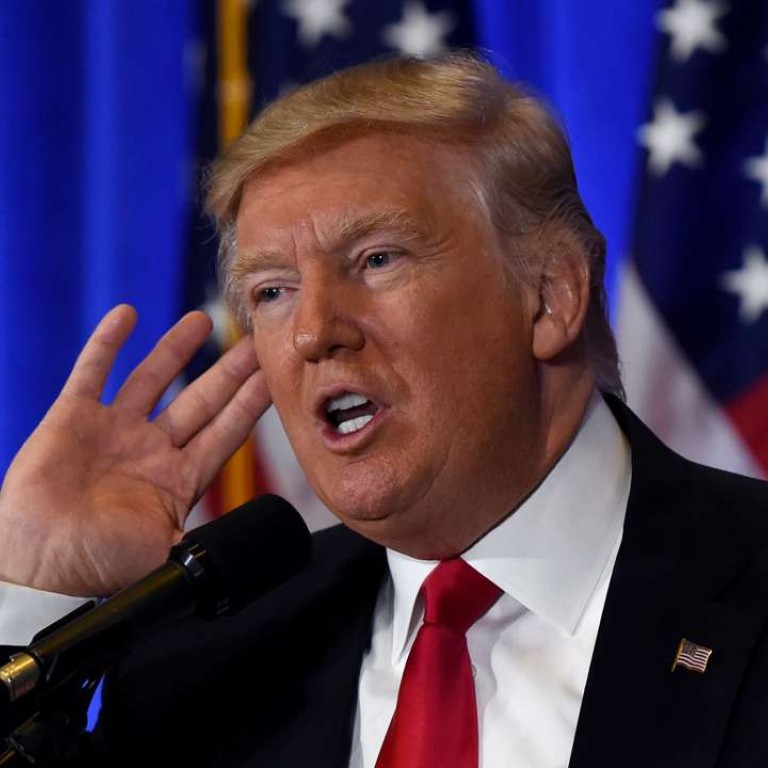
Chinese create fake Trump tweets as jokes and New Year wishes
Even though Twitter is banned on the mainland, users are creating millions of fake @realdonaldtrump tweets in Chinese and English and posting them on social media
In China, Twitter is blocked but fake tweets by @realdonaldtrump look set to become the latest internet sensation.
Users are flocking to websites that let them generate images of fake tweets that look just like those sent from US President Donald Trump’s distinctive personal Twitter account – replete with his avatar and a real-time timestamp.
Here are a few examples of what people are writing: @realdonaldtrump would like to wish you a Happy Lunar New Year; @realdonaldtrump thinks Shanghai Jiaotong University is better than its crosstown rival; @realdonaldtrump wants to buy a jianbing [typical Chinese street food] and wants Mexico to pay for it; and @realdonaldtrump’s “favorite boy band” is the South Korean group GOT7: “They are so cute!”
A Shanghai-based start-up, Jike, running one such website said on Thursday that in just four days, users had created more than a million fake @realdonaldtrump tweets in Chinese and English, often mimicking Trump’s tone and fondness for exclamation marks.
They are being shared on Chinese social networking sites to crack jokes, tout online goods and send Lunar New Year greetings.
The tweets circulating on Chinese social media reflect how Trump’s use of Twitter is even seeping into the popular consciousness of a country where Twitter has been blocked by censors for years.
Although Trump’s comments on trade, Taiwan and the South China Sea have raised concerns in Beijing, there is a certain fascination about Trump among some young mainlanders who see him as a symbol of American showmanship while overlooking his anti-China rhetoric, at least for now.
“For young Chinese people, Trump has an extremely iconic image,” said Lin Hang, a co-founder of Jike. “His Twitter content can easily spark conversations in China. His language style is very recognisable. So when netizens put their everyday life musings or roasts in his voice, it provokes a certain reaction, a certain resonance.”
Jike, founded by Chinese who studied at the University of Michigan business school and worked at Google, rolled out the website on Sunday, Lin said. Employees at the start-up, which mainly produces a personalised news app, started sharing it with their friends that night as a joke.
It spread quickly from the highly educated, English-speaking internet circles to other social groups and smaller cities, Lin said.
Watch: Chinese factory makes a fortune from Trump masks
Despite tight government controls over online discourse, particularly surrounding sensitive domestic news, mainland China’s 700 million internet users have a freewheeling web culture that churns out a running stream of commentary, memes and wisecracks about international news.
Along with Twitter, other foreign social media sites such as Facebook and YouTube are also inaccessible within the mainland.
Vincent Zhang, a 37-year old employee at Jiayuan, a Chinese online dating site, said many young Chinese had a relatively neutral view of Trump and saw him as a showman.
“Now it’s a lot of jokes because the trade issues don’t feel like they affect our ordinary lives,” Zhang said. “If he made it much more difficult to get US visas, then you will see a lot of people insult him.”

